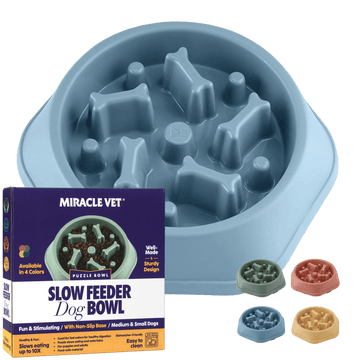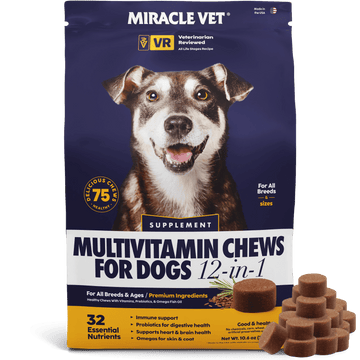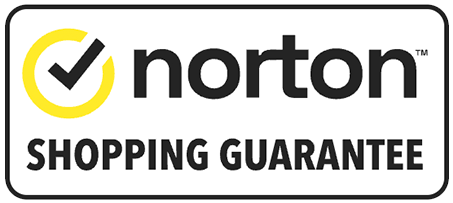-
Understand the pros and cons of dog weight gain supplements versus homemade food.
-
Learn the best ingredients for homemade dog food to support healthy weight gain.
-
Discover how to build a balanced, nutrient-rich diet for your dog.
-
Find out how feeding schedules and ingredient combinations impact results.
-
Get answers to common questions about dog weight gain.
Helping your dog achieve healthy weight gain is more than a short-term fix—it’s a strategic part of supporting their long-term vitality and overall well-being. Whether your dog is underweight due to illness, age, or natural body composition, implementing the right nutritional approach can significantly improve their energy levels, mood, and resilience. Healthy weight gain for dogs requires more than just increasing calories—it involves a careful balance of macronutrients, feeding strategies, and ingredient quality tailored to your dog’s unique needs. Pet owners typically choose between high-calorie commercial supplements and homemade, nutrient-dense meals. Each option has its own strengths and limitations, and in this guide, we’ll break down both to help you make an informed, results-driven decision for your canine companion.
Understanding Dog Weight Gain: Supplements vs. Homemade Food
To support healthy weight gain, dogs need extra calories, protein, fat, and nutrients to stay healthy and happy. Both dog weight gain supplements and homemade meals can help meet those needs, but they do it differently.
When it comes to healthy weight gain for dogs, it’s not just about piling on calories—it’s about giving them the right kind of nutrition that supports long-term wellness.
Supplements are quick and convenient, often packed with concentrated calories, vitamins, and amino acids. Homemade dog food, on the other hand, gives you full control over what goes in the bowl—no fillers or mystery ingredients.
As you decide what’s best for your pup, consider their age, energy level, sensitivities, and what works best with your routine and budget.
The Importance of Weight Management in Dogs
Maintaining an ideal weight helps dogs live longer, healthier lives. Underweight dogs may experience lethargy, poor immunity, and weak muscle tone. Proper weight gain supports energy, immune function, and mobility, and reduces the risk of chronic conditions.
Weight gain should be gradual and intentional. Feeding nutrient-dense meals regularly and observing your dog’s body condition will help ensure you’re on the right track.

Dog Weight Gain Supplements
Supplements designed for weight gain are concentrated sources of calories, nutrients, and muscle-building proteins. They’re especially helpful for dogs recovering from illness, those with poor appetites, or those needing a calorie boost.
Types of Dog Weight Gain Supplements:
-
Whey protein powders: High in amino acids to promote muscle development.
-
High-calorie liquid dog supplements: Easily digestible with added vitamins and fats.
-
Soft chew supplements: Nutrient-rich with flavors like bacon or peanut butter.
-
High-calorie dog food supplements: Can be mixed with kibble for calorie enhancement.
Pros:
-
Quick results
-
Easy administration
-
Ideal for picky eaters
-
Vet-recommended formulas are often balanced and safe
Cons:
-
Risk of digestive issues if overused
-
May lack the variety of nutrients found in real food
-
Dogs may become too reliant on enhanced flavors
-
Quality varies—choose only trusted, vet-approved brands

Homemade Dog Food for Weight Gain
More pet owners are turning to homemade dog food to help their pets gain a healthy weight. This approach gives you complete control over ingredients and calorie content, making it easier to tailor meals to your dog’s needs, especially if they have food allergies or other health concerns.
For many, this hands-on method is one of the most effective ways to promote healthy weight gain for dogs, especially when paired with quality ingredients and consistent feeding habits.
Fresh, preservative-free meals can be rich in nutrients and highly digestible, which is excellent for steady weight gain. You can boost the benefits even more by adding a dog weight gain supplement to ensure your pet gets complete and balanced nutrition.
However, cooking at home does come with challenges. Planning, prep, and cooking meals takes time, and keeping a consistent feeding routine can be tough. Still, if you're committed, homemade meals with the right supplements can be a great way to support your dog's weight gain journey.
Let’s break down the pros and cons of homemade dog food for weight gain, so you can decide what’s best for your pup.
Nutritional Benefits of Homemade Meals
-
Free from artificial additives and fillers
-
Customizable for allergies and health conditions
-
Packed with nutrients from whole ingredients
Challenges of Homemade Diets
-
Time-consuming to prepare
-
Difficult to balance nutrients without expert guidance
-
May require additional supplementation
Balanced Homemade Dog Food
What It Takes To ensure a nutritionally complete homemade diet, pet owners should include a variety of food types:
-
Protein: Ground beef, turkey, chicken, eggs, cottage cheese
-
Carbohydrates: Sweet potatoes, pumpkin, brown rice, oats
-
Healthy Fats: Coconut oil, fish oil, peanut butter
-
Vegetables: Spinach, carrots, green beans
-
Supplements: Fish oil, calcium, vitamin D, amino acids, and Balance IT (or other vet-approved blends)
These good ingredients for homemade dog food help deliver a balanced dog food recipe that supports healthy weight gain.
Best Ingredients for Homemade Dog Food
-
Sweet potato
-
Pumpkin
-
Peanut butter (xylitol-free)
-
Cottage cheese
-
Coconut oil
-
Eggs
-
Ground beef or turkey
-
Brown rice
-
Olive oil
-
Fish oil
Balanced Homemade Dog Food Recipes
Recipe 1: Beef & Sweet Potato Bowl
-
Ground beef (protein)
-
Sweet potato (carbohydrate and fiber)
-
Coconut oil (fatty acids)
-
Spinach (iron and vitamins)
Recipe 2: Chicken & Rice with Pumpkin
-
Shredded chicken (lean protein)
-
Brown rice (energy source)
-
Pumpkin puree (fiber and beta-carotene)
-
Olive oil (healthy fat)
Recipe 3: Peanut Butter & Cottage Cheese Mix
-
Low-sodium cottage cheese
-
Natural peanut butter
-
Hard-boiled eggs (chopped)
-
Ground oats (for calories)
Top Vitamins and Nutrients for Weight Gain
-
Vitamin A, D, E
-
Omega-3 & Omega-6 fatty acids
-
Amino acids (especially for muscle mass)
-
Probiotics (for digestion)
-
Calcium & phosphorus (for bones and metabolism)
Tips to Help Your Dog Gain Weight
-
Feed small, frequent meals throughout the day
-
Choose nutrient-dense, high-calorie ingredients
-
Incorporate both wet and fresh foods for taste appeal
-
Stick to a consistent feeding schedule
-
Track weight and adjust portion sizes accordingly
High Protein vs. High Fat: Which Is Better?
Protein supports lean muscle growth, while fat provides more calories per gram. For underweight dogs, a mix of both is best. High-fat options like peanut butter or fish oil give quick energy, while protein sources like eggs and beef support long-term gains.
Adjusting Feeding Schedules
Feeding your dog 3–4 smaller meals daily can improve digestion and encourage more consistent intake. Regular feeding also helps maintain stable energy levels and prevent blood sugar drops in underweight dogs.
Conclusion
Whether you choose supplements or homemade food, your dog’s weight gain journey should focus on balanced nutrition and quality ingredients. Healthy weight gain for dogs isn’t just about adding calories—it’s about providing the right nutrients to support their energy, muscle development, and overall well-being. Weight gain supplements offer fast, measurable results and convenience. Meanwhile, homemade dog food lets you control every aspect of the diet. Either way, ensure the food includes high-quality protein, healthy fats, and essential vitamins. Work closely with your vet and monitor your pet’s body condition to maintain a healthy weight.
Frequently Asked Questions
Can Peanut Butter Help My Dog Gain Weight? Yes, peanut butter is rich in healthy fats and calories. Just ensure it’s xylitol-free.
Can Eggs Make My Dog Gain Weight? Yes. Eggs provide protein and fat, both essential for muscle growth and energy.
Does Rice Help a Dog Gain Weight? Yes. Rice is a calorie-dense carbohydrate and works well with proteins like beef or chicken.
My Dog Is Eating, But Not Gaining Weight—Why? Your dog could have a high metabolism, digestive issues, or health concerns. Consult your vet.
What Else Can I Add to My Dog’s Food to Help Them Gain Weight? Add fish oil, cottage cheese, coconut oil, eggs, or high-calorie treats.
What Are Some Homemade Food Recipes for Dog Weight Gain?
-
Beef and sweet potato mash
-
Chicken and pumpkin rice bowl
-
Peanut butter with oats and cottage cheese
How Quickly Can a Dog Gain Weight with Supplements? With the right plan, dogs can gain 1–2 pounds per week. Vet supervision is key to safe progress.











